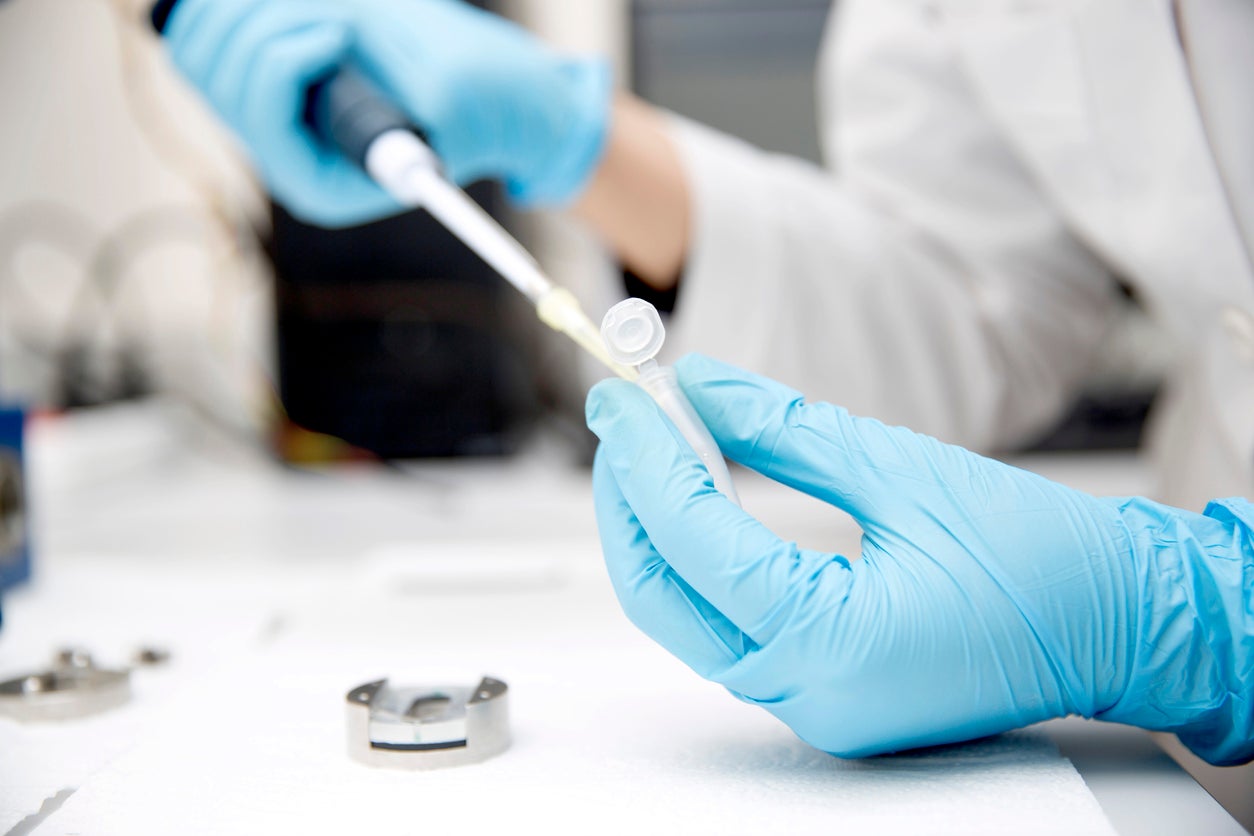Coronavirus mutating to survive and spread faster, scientists believe
There is no evidence the virus is becoming more lethal

Your support helps us to tell the story
From reproductive rights to climate change to Big Tech, The Independent is on the ground when the story is developing. Whether it's investigating the financials of Elon Musk's pro-Trump PAC or producing our latest documentary, 'The A Word', which shines a light on the American women fighting for reproductive rights, we know how important it is to parse out the facts from the messaging.
At such a critical moment in US history, we need reporters on the ground. Your donation allows us to keep sending journalists to speak to both sides of the story.
The Independent is trusted by Americans across the entire political spectrum. And unlike many other quality news outlets, we choose not to lock Americans out of our reporting and analysis with paywalls. We believe quality journalism should be available to everyone, paid for by those who can afford it.
Your support makes all the difference.The coronavirus appears to have mutated to become more transmissible, a new US study has found, possibly in response to human interventions like social distancing.
The new research did not find the mutations made the virus any more severe.
The study, which has not yet been peer-reviewed, examined more than 5,000 genetic sequences of the virus, concluding that one of the many mutations the coronavirus has accumulated changes the structure of the “spike protein” on the surface of the virus, driving the strain’s dominance.
Prevalence of the mutation, known as D614G, was at 71 per cent during the first wave in Houston, where the study was carried out.
The mutation, which is believed to have originated in China, has since leaped to 99.9 prevalence since the second, ongoing wave beginning in May.
All viruses mutate and most of these random changes to the genetic sequence are insignificant.
However, researchers found that people infected with this strain had higher viral loads in their upper respiratory tracts, allowing for the virus to spread more efficiently.
It follows a UK study that found similar results, learning that D614G was rapidly expanding and had become the dominant strain in Europe before taking hold in the Americas and Australia.
Like the US study, it found no difference in disease severity following mutation.
Theoretically, scientists believe the evolutionary trend viruses are pushed towards is to increase their rate of infection and decrease the severity of symptoms, as viruses need living hosts to survive.
David Morens, a virologist at the National Institute of Allergy and Infectious Diseases (NIAID), reviewed the new study and told the Washington Post the likely possibility that the virus has become more contagious has “implications for our ability to control it”. He warned against “over-interpreting” a single paper.
The senior advisor to Anthony Fauci said that the virus could be reacting to human interventions, including masks and social distancing, that have been developed since the beginning of the pandemic to stem its spread.
Dr Morens told the Washington Post: “Wearing masks, washing our hands, all those things are barriers to transmissibility, or contagion, but as the virus becomes more contagious it statistically is better at getting around those barriers.”
The results have implications for vaccine development, Dr Morens explained.
"Although we don't know yet, it is well within the realm of possibility that this coronavirus, when our population-level immunity gets high enough, this coronavirus will find a way to get around our immunity," Dr Morens said.
If that happens, scientists will have to respond to it in the same way as the flu, he said, “chasing the virus” and “tinkering” with the vaccines as it mutates.






Join our commenting forum
Join thought-provoking conversations, follow other Independent readers and see their replies
Comments